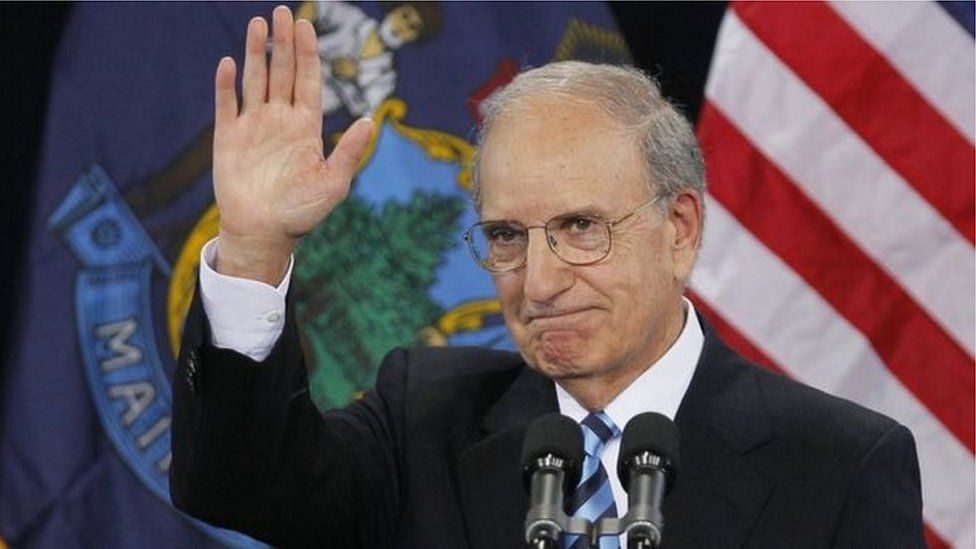Border controls 'a step backwards' warns US senator George Mitchell
- Published

The American senator who brokered the Good Friday Agreement has warned that border controls between Northern Ireland and the Republic of Ireland would be a "step backwards" in the peace process.
Senator George Mitchell told The World This Weekend that the ability to cross the border was important.
It contributed to "the stability that's developed over the past two decades".
Changing that would have an adverse effect, he said.
"I believe that the restoration of a militarised border with strict controls limiting traffic back and forth would have an adverse effect on relations within the island of Ireland," he said.
"The ability to move back and forward across the border that has existed for the past several years has been very helpful in increasing commerce and also in reducing stereotypes on both sides.
"I think that that would be a step backward for that to occur."
Senator Mitchell , who was was President Bill Clinton's special envoy to Northern Ireland, said he did not want to prejudge any deal that may be done on the border, but he expressed optimism that the "constructive and thoughtful leaders on all sides" could reach an agreement that would "permit open access".
Asked if Brexit was a breach of the Good Friday Agreement, Senator Mitchell said the deal "plainly contemplates the possibility of a vote under certain circumstances" that change Northern Ireland's constitutional position.
"The agreement plainly provides that the political status of Northern Ireland can be determined or changed only through a vote - and it's the informed consent through a vote - of the people of Northern Ireland," he said.
He added: "I'll leave those arguments to the people of Northern Ireland and the UK."
Senator Mitchell also said Britain and Ireland's membership of the European Union had helped create the conditions for the peace process in Northern Ireland.
"There can be no doubt that the presence of Ireland and the United Kingdom in the EU was a significant factor in leading both governments to reach the conclusion that if there was to be a resolution to the conflict in the North it had to be led and underpinned by a joint effort by the two governments," he said.
"I think their being in the European Union for some years before that was a significant factor in the warming of what had been a very cold relationship."
- Published11 January 2016
- Published6 April 1999
- Published12 May 2015
- Published13 May 2011
- Published22 January 2009
- Published10 April 2008
- Published30 March 2006
- Published1 September 2003
- Published7 October 2001